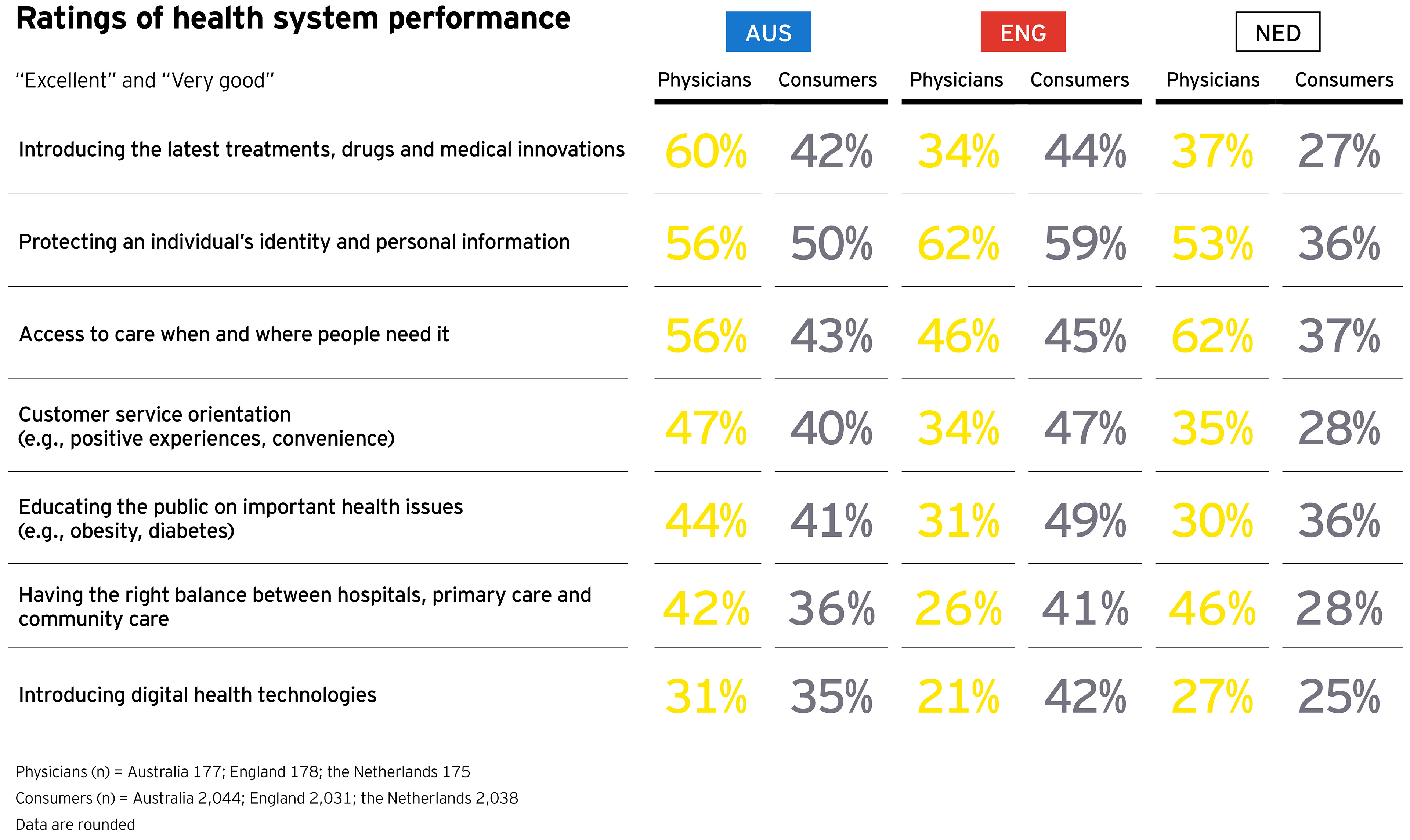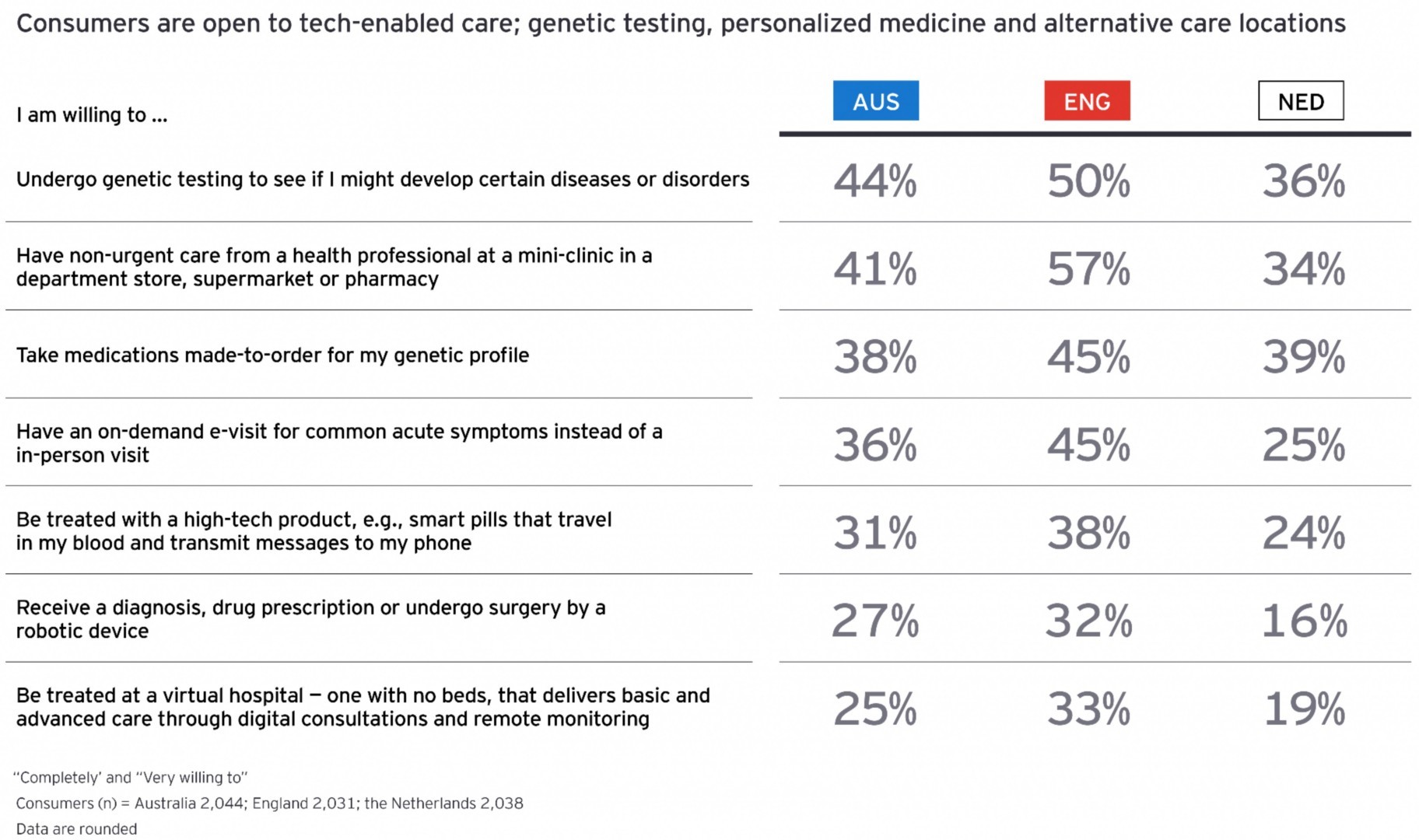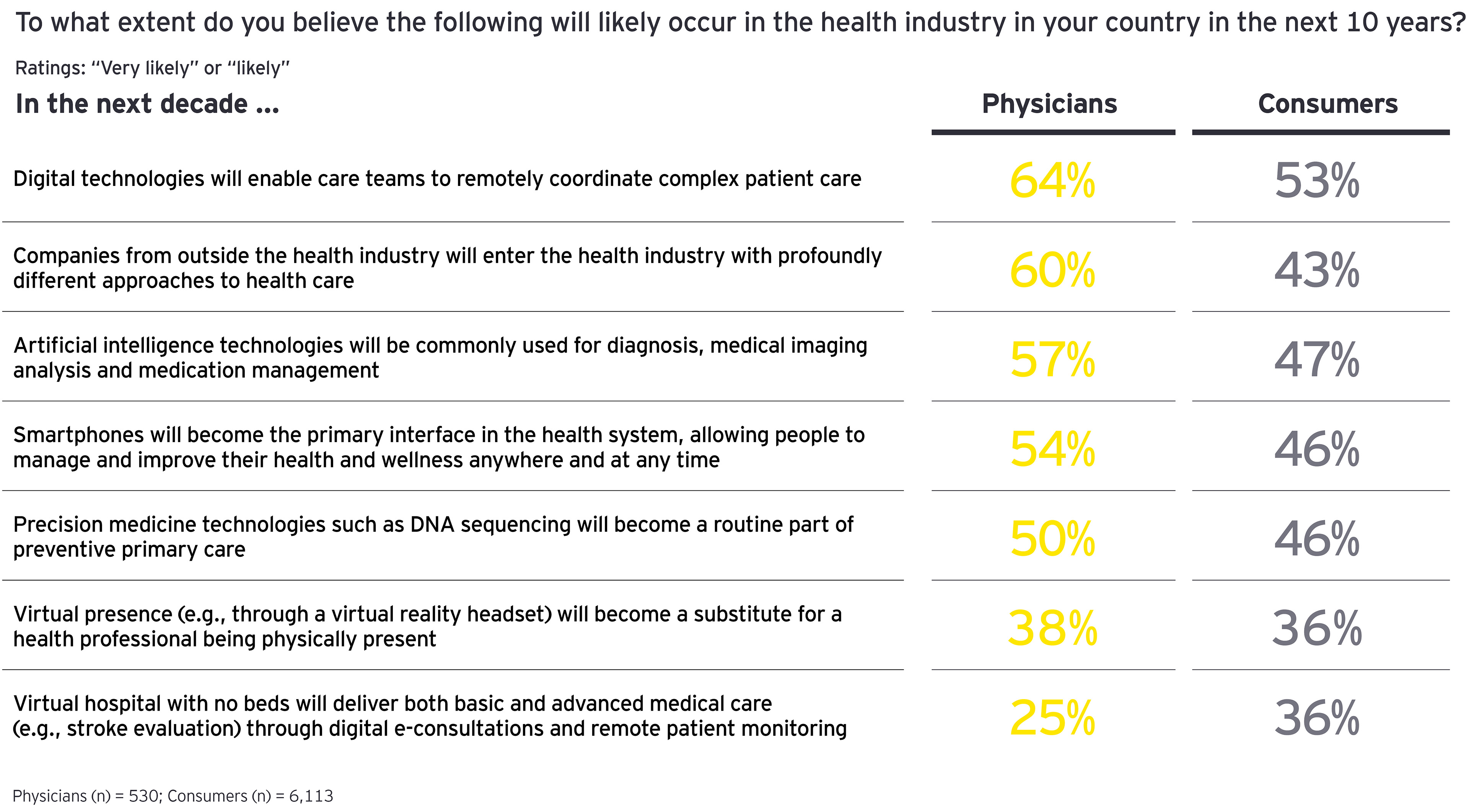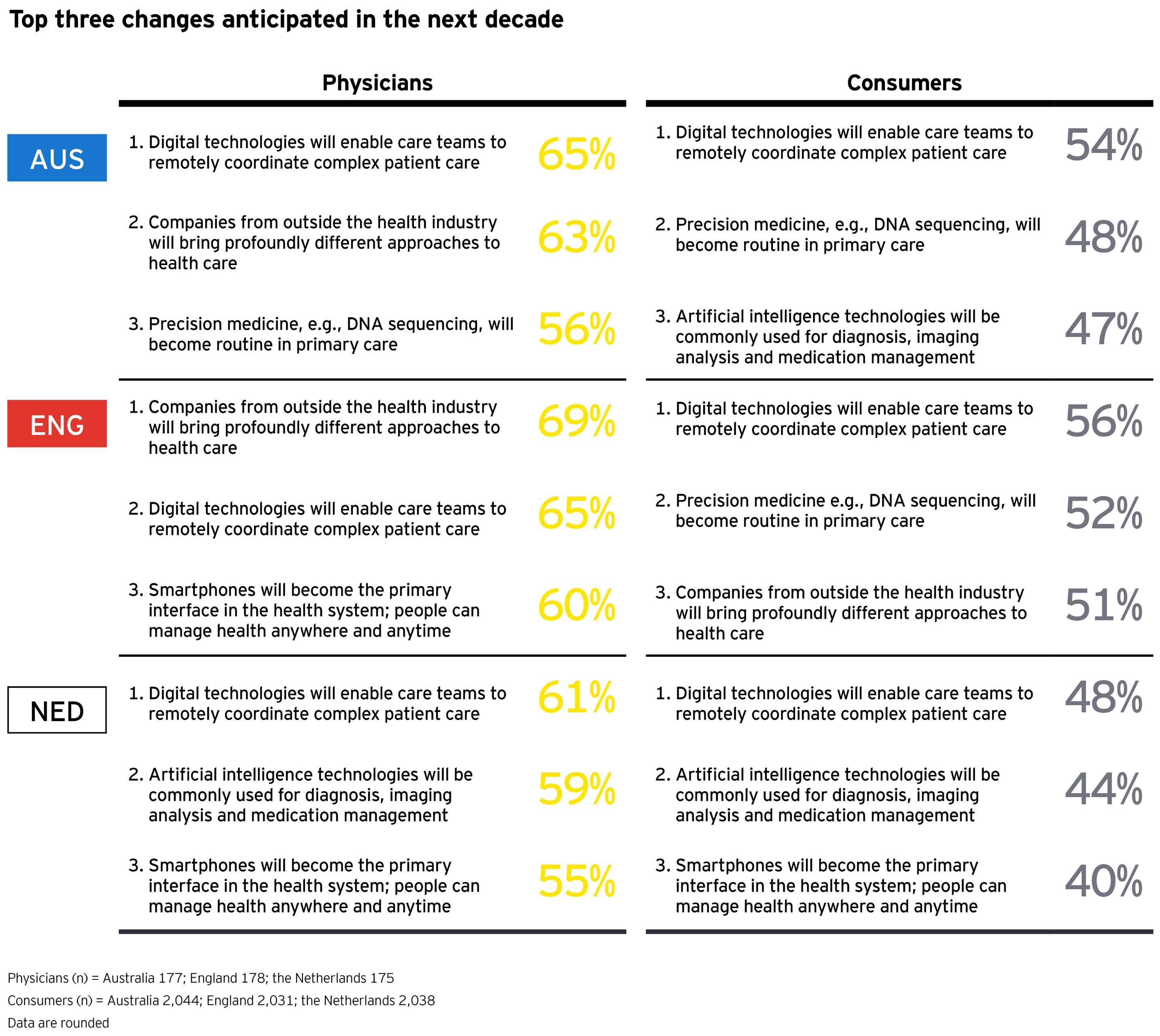Summary
In the next 10 years, physicians and consumers expect that their health systems will be very different from today. Over a relatively short period, the core business of health will be anchored around digitally enabled models of care, including virtual delivery and interactive person-centered tools. Health businesses without a game plan to incorporate tech-enabled highly personalized care will be found wanting as a maturing consumerism and transformative digital technologies align to create a powerful force for change.
Learn more in our full comprehensive reports, How will tech-enabled change play out in health care in the next decade? (pdf) and Consumers edging toward impatience: consumer appetite for digitally driven care is rising (pdf). Read our in-depth analysis of country findings in our How will advances in technology put the consumer at the center of health care? reports for Australia (pdf), England and the Netherlands (pdf).






